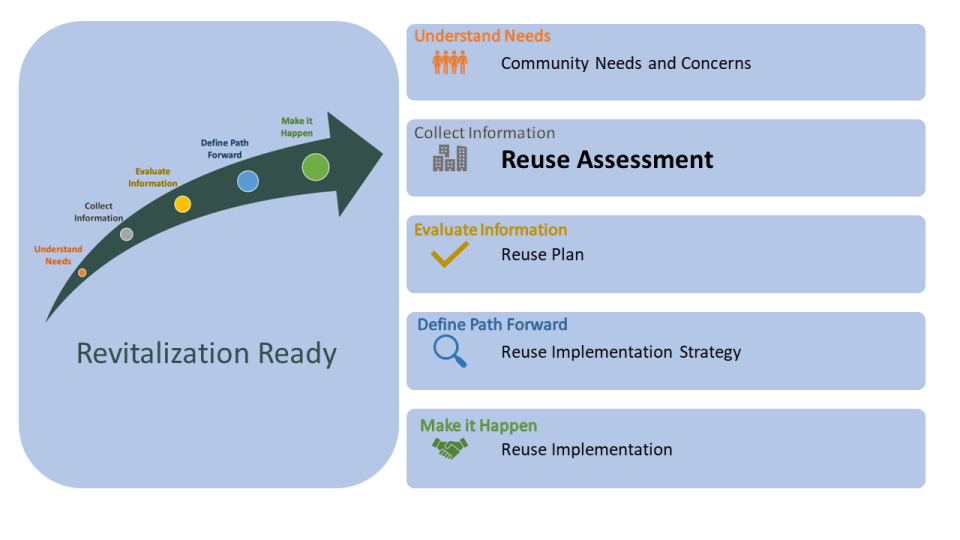Revitalization-Ready Guide - Chapter 3: Reuse Assessment

The reuse assessment identifies and evaluates attributes and characteristics about the property and summarizes key findings that will help develop a realistic reuse plan for a property with a greater opportunity for success. It also provides the information needed to determine the optimum role for the local government in the reuse and redevelopment process. The reuse assessment compiles information resulting from:
- Due Diligence – Identifying attributes and characteristics of the property.
- Environmental Due Diligence – Assessing the environmental condition and regulatory issues affecting the use of the property.
- Real Estate Due Diligence – Identifying available infrastructure, accessibility, easements, zoning and other characteristics to support reuse of the property.
- Environmental Condition Impact Analysis – Assessing the impact of the environmental condition on potential reuse of a property.
- Land Use Assessment – Identifying land use options consistent with the surrounding area, local planning and zoning, and viable uses of the property.
- Infrastructure Assessment – Evaluating available infrastructure (access, transportation, utilities) and infrastructure needs to support reuse.
- Market Study - Providing insight into potential reuse options (residential, commercial, retail, industrial). It looks at information such as population, demographics and market demand.
- Opportunities and Constraints Analysis - Identifying attributes and characteristics of the property (environmental condition, available infrastructure, accessibility, easements, zoning) that provide positive or negative impacts to one or more possible uses of the property.
- Feasibility Analysis – Evaluating the economic viability of potential reuse options. This typically involves a preliminary financial analysis of a potential reuse .
Depending on the in-house capability of the local government, outside expertise may be needed to conduct or interpret the information developed during the reuse assessment. The reuse assessment also can provide insight on information gaps, which can help inform the due diligence process. Further, it can be important in establishing what is likely to be the highest and best use of the property from both the developer’s and the local government’s perspectives and in determining its market value.
Information management is an important component of the reuse assessment process. Information collected during the reuse assessment should be organized and documented in a manner that:
- supports decision-making;
- is easily retrieved;
- can be presented to and understood by stakeholders and potential developers; and
- includes spatial information and graphic illustrations of key property features and the surrounding area (see Chapter 4).
Reference:
EPA:
Plan for Brownfields Redevelopment Success: Site Reuse Assessment (pdf)
You can also return to the beginning of the Guide.
